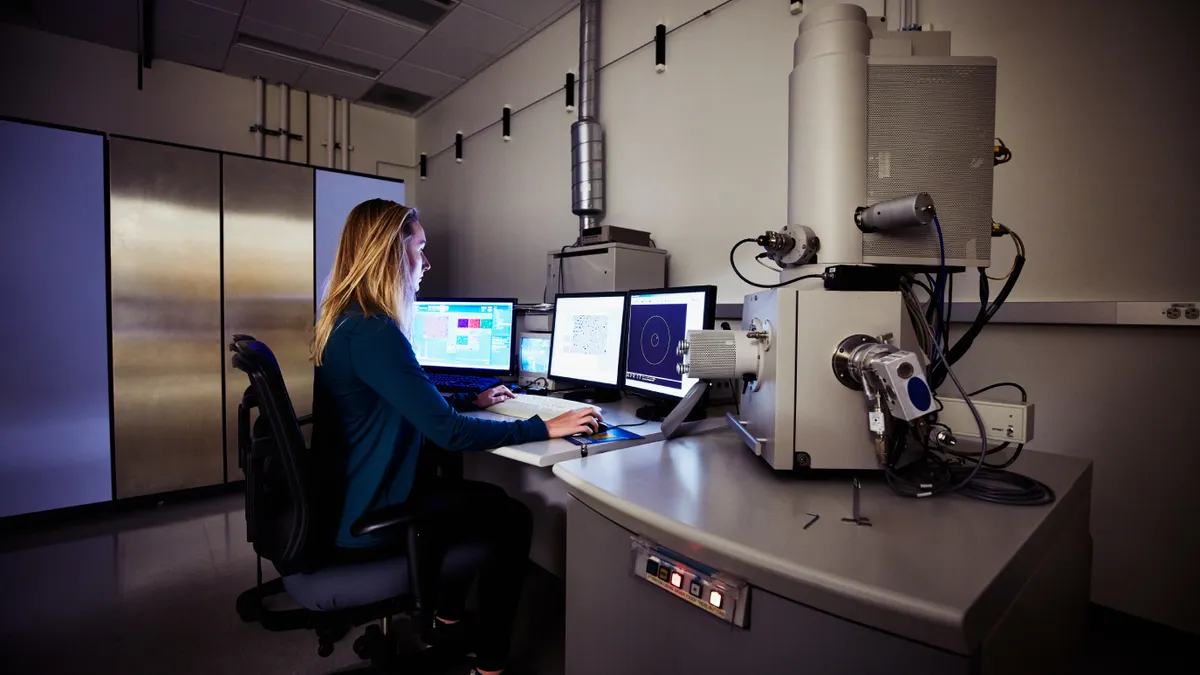Senators Maggie Hassan, New Hampshire Democrat, and Todd Young, and Indiana Republican, have been at the forefront of efforts to bolster one of the most powerful tax incentives in the U.S. tax code.
Earlier in May, the U.S. Senate voted in favor of a resolution to expand the research and development (R&D) tax credit as part of the U.S. Innovation and Competition Act. The provision, put forward by Hassan and Young, passed in an overwhelmingly bipartisan fashion of 90 to 5.

Any efforts to further strengthen this incredibly effective tax credit are welcome. Doing so reflects the true intent of the credit, which is to strengthen and support American businesses and their innovation efforts. However, the Internal Revenue Service recently put forward changes that will impact businesses seeking refunds. Those changes appear to run counter to Congress’s intent for the incentive.
Documentation Requirements
Congress created the R&D credit in 1981 as part of the Economic Recovery Act (also called the Kemp-Roth Tax Cut). The credit was put forward to reward American businesses for their work to innovate and compete on a global scale.
After the actual value of the credit was established, the incentive was expanded. Some of the most significant changes made to the credit came in 2015. The Protecting Americans from Tax Hikes Act (PATH Act) made the credit permanent and expanded the qualification pool for the incentive to include smaller businesses.
Earlier this year, though, the IRS released new requirements for taxpayers that wish to claim refunds for R&D credits, leaving many in the world of tax concerned.
The new requirements were detailed in various agency announcements, including a January 2022 agency memorandum. The memo spelled out the new items that taxpayers have to provide the IRS to qualify for R&D credit refunds.
According to the IRS, companies must now provide the following materials:
All business components forming the factual basis for the R&D credit claimed for that year
All research activities performed by business components
A list of any individuals who performed each research activity by business component
The information each individual looked to discover by each business component
Total qualified employee wage expenses, supply expenses, and contract research expenses
On February 8, the IRS released an updated version of its FAQs addressing the changes. The updates touched on fulfilling the requirements based on research credits from pass-through entities and made clear that taxpayers whose amended tax returns were e-filed must also provide the five new items of information on their e-filed return.
The updated FAQs also stated, “[The] appeals resolution process is not available for refund claims that are rejected on the basis that they are deficient or otherwise not processible.”
Roadblocks
The technical qualifications for the R&D credit remain the same. But there is certainly more information required to qualify, which will undoubtedly create burdens for businesses that don’t have the bandwidth to comply.
As a former commissioner at the IRS, I understand the pushback against these new requirements. However, I also sympathize with the agency and understand why it put them forward.
This raises the question of whether these new requirements and additional steps that the IRS might come out with down the road align with Congress’ original intent.
These new IRS requirements still allow for small and medium-sized businesses to qualify, but they undoubtedly make the road to qualification tougher. For instance, if a taxpayer fails to submit the required documentation, it likely will result in an invalid claim. That may very well preclude the business from “perfecting” the claim or accessing any administrative remedy or judicial review.
There is a one-year transition period in which a taxpayer will have 45 days to perfect an R&D credit refund claim before the agency’s final determination; however, the obstacle to qualification remains present.
These changes have already garnered negative attention, particularly from prominent tax organizations like the American Institute for Certified Public Accountants.
As a former commissioner at the IRS, I understand the pushback against these new requirements. However, I also sympathize with the agency and understand why it put them forward.
This kind of change is designed to quickly and efficiently weed out taxpayers that objectively don’t qualify for the credit while optimizing the operational efficiency of processing credit claims.
That is a worthy objective, particularly given the agency's limited resources and is struggling and seemingly insurmountable tax return backlogs. But the possibility of excluding a good portion of businesses, which simply don’t have the resources to comply, likely isn’t worth the operational efficiency gained.
The IRS should think about the unintended consequences of piling on more requirements for tax incentives, such as the R&D credit. Small and medium-sized businesses rely on to access the capital they need to reinvest in themselves and become more competitive. Perhaps there is an alternative route, including a possible threshold amount for a credit requiring this sort of new documentation.
Small, taxpaying businesses will begin to question their return on investment from the time required to compile and file the required information. Although these new requirements only apply to amended returns, there is a foreseeable slippery slope if the agency decides to make the changes applicable to all credits.
Expanding these changes to all credits certainly would not align with Congress’ intent to make the credit available to all-size businesses. Instead, Congress should look to make the process of claiming these credits straightforward, to bolster the impact on America’s innovation and economic engines.
Eric Hylton is the immediate former commissioner for small business/self-employed at the IRS and the current director of compliance at alliantgroup.












